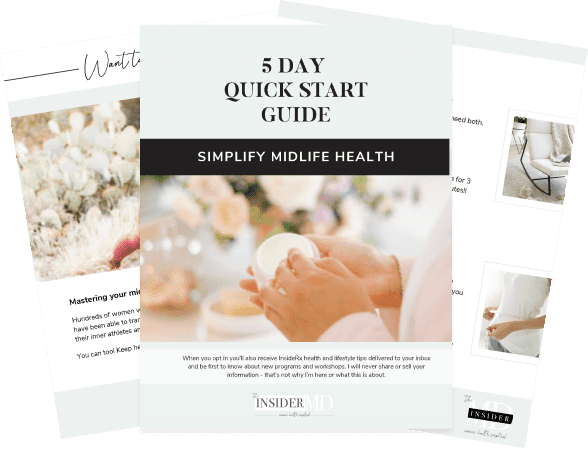
Menopausal Mood Swings or Depression? How to tell the difference
Menopause is a natural process that marks the end of a our reproductive years. It typically occurs between the ages of 45-55, with the average age being 51 in the United States. Hormonal fluctuations occur during the transition to menopause that can lead to mood swings. As our lower hormone levels stabilize after menopause, those mood swings do too. While mood swings are a common symptom, they are sometimes mistaken for depression. Let’s explore how to differentiate between them.
Menopause Mood Swings
Sudden and intense feelings including irritability, anxiety, sadness, or anger, characterize menopause-related mood swings, typically caused by a shift in hormone levels. In particular, a decrease in estrogen can impact the brain’s neurotransmitters, leading to mood fluctuations that can feel very frustrating, confusing and often arbitrary.
Symptoms of Menopause-Related Mood Swings:
- Irritability or anger
- Anxiety or nervousness
- Sadness or feeling down
- Fatigue or lack of energy
- Difficulty sleeping
- Decreased libido
Depression
Depression is a mental health condition characterized by persistent sadness, hopelessness, and a lack of interest or pleasure in once-enjoyable activities. Depression is a complex condition that can be caused by a combination of biological, psychological, and social factors. While menopause can trigger depression in some women, it is not the sole cause.
Symptoms of Depression:
- Persistent feelings of sadness, hopelessness, or worthlessness
- Loss of interest or pleasure in activities
- Fatigue or lack of energy
- Difficulty sleeping or oversleeping
- Changes in appetite or weight
- Difficulty concentrating or making decisions
- Thoughts of suicide or self-harm
Differentiating Menopause Mood Swings from Depression
While menopause mood swings and depression can have similar symptoms, there are some key differences to look out for. One of the most significant differences is that menopause-related mood swings tend to be more fleeting, while depression is typically persistent. Another key difference is specific events or circumstances often trigger menopausal mood shifts, while depression can occur even in the absence of any triggers.
If you are experiencing mood swings or other symptoms of menopause, speaking with your healthcare provider is essential. They can help you determine the best course of action and may recommend hormone replacement therapy or other treatments to help manage your symptoms.
If you think you are experiencing symptoms of depression, it is also crucial to seek help from a mental health professional. Depression can be a severe condition that requires treatment, and a professional can help you develop a treatment plan and roadmap.
Insider Takeaways:
While menopause-related mood swings and depression can have similar symptoms, there are key differences to look out for. If you are experiencing symptoms of either condition, it is worth seeking a professional to guide you and determine the best course of action. You can manage your symptoms and maintain your overall well-being with the right support.
Want to learn more about Menopausal mood swings and depression? Check out Mastering Menopause for the latest evidence-based treatments and tips.

MEET DR. ELLEN
My mission is to bring you the most up-to-date, proven medical information, simplified, so you can make confident, educated decisions about your health.
I'M LOOKING FOR...
grab your 5 day
quick start guide



